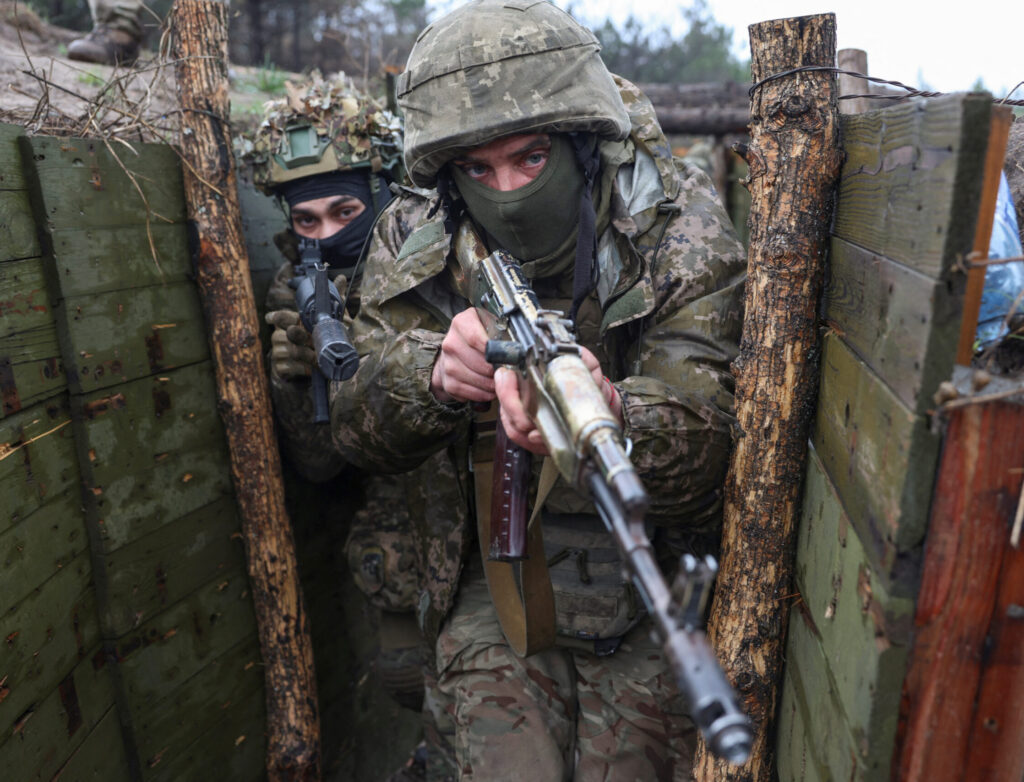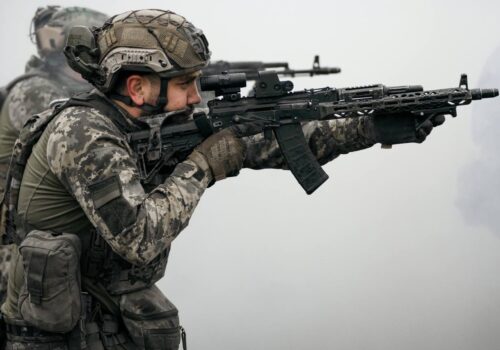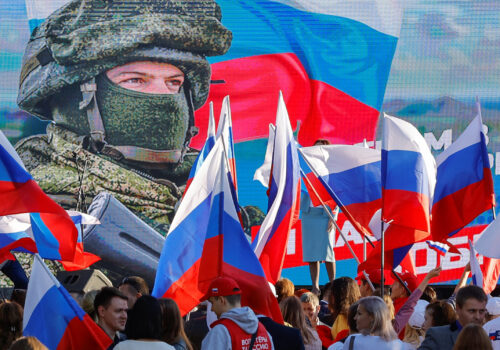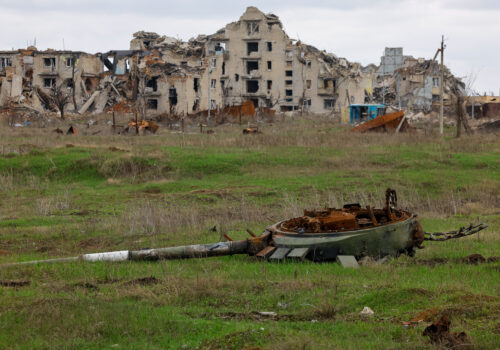Ever since the first months of Russia’s full-scale invasion in spring 2022, Kyiv has played host to a steady stream of visiting European officials eager to demonstrate their support for Ukraine. With the war now in its fourth year, there are growing signs that this relationship is evolving and becoming more balanced. While Kyiv continues to rely on European aid, it is increasingly clear that Ukraine also has much to offer and can play a major part in the future security of Europe.
Following his return to the White House in January, US President Donald Trump has initiated a dramatic shift in United States foreign policy that has left many in Europe unsure of the transatlantic alliance and keen to ramp up their own defense capabilities. This geopolitical instability is also encouraging European policymakers to rethink Ukraine’s role in the defense of the continent. With unparalleled combat experience and proven ability to scale up arms production at relatively low cost, Ukraine is in many ways the ideal partner for European countries as they confront the twin challenges of an expansionist Russia and an isolationist US.
Stay updated
As the world watches the Russian invasion of Ukraine unfold, UkraineAlert delivers the best Atlantic Council expert insight and analysis on Ukraine twice a week directly to your inbox.
Ukraine’s defense industry has grown at a remarkably rapid rate since 2022 and is now capable of meeting approximately 40 percent of the country’s military needs. The segment that has attracted the most international attention so far is drone production, with Ukraine widely recognized as a global leader in drone warfare. It requires a careful approach in order to identify the few true gems from among the hundreds of Ukrainian companies currently producing over a million of drones per year, but the potential for groundbreaking advances in drone technologies is obvious.
In order to make the most of this potential, Ukraine must first safeguard its survival as an independent nation. Looking ahead, a key challenge for the Ukrainian authorities will be creating the kind of business climate that can enable the country’s emerging defense industry to prosper in a postwar environment that is likely to feature declining defense budgets.
At present, many Ukrainian defense sector companies are moving production to locations outside Ukraine due to a combination of factors including export bans and a lack of financing options inside the country. The most elegant solution to this problem is to promote more defense sector partnerships with Ukraine’s European allies.
Eurasia Center events

During the first few years of Russia’s full-scale invasion, security cooperation between Ukraine and the country’s partners was generally a one-way street, with weapons and ammunition flowing to Kyiv. More recently, a new model has emerged involving Western countries funding production at Ukrainian defense companies. This approach is efficient and strategically sound. It boosts Ukraine militarily and economically, while also taking advantage of the country’s strengths as a cost-effective and innovative arms producer. However, it lacks long-term appeal for Ukraine’s partners.
Establishing joint ventures between Ukrainian and European defense companies may be a more attractive and sustainable format. This would be a financially attractive way of fueling Europe’s rearmament, and would allow participating companies to build on a wide range of potential research and development synergies. Setting up production facilities in wartime Ukraine would clearly involve an element of risk, but this need not necessarily be a deal breaker if sensible security measures are implemented.
The scope for such joint ventures is huge. Indeed, it would make good sense to invest in specialized business and science parks providing the full range of related services and industry expertise. Initially, jointly produced equipment could be fast-tracked to the Ukrainian Armed Forces. Further down the line, output could also be exported to partner countries and global markets. The growth of joint ventures would significantly improve Ukraine’s defensive potential and enhance the country’s ability to shield Europe from the Russian threat.
An ambitious European rearmament plan is currently taking shape that could significantly accelerate the integration of Ukraine’s defense industry. For this to happen, a number of regulatory and operational issues must first be resolved in Kyiv, Brussels, and various European capitals. While Ukraine can undoubtedly make a meaningful contribution to European security, the continent’s political complexities are particularly pronounced when it comes to defense budgets and procurement policies. It will require a degree of pragmatism to dismantle bureaucratic hurdles and overcome narrow national interests.
As European leaders adapt to radical shifts in the geopolitical landscape, Kyiv is ideally positioned to help the continent address its most pressing security needs. Ukraine’s army is by far the largest in Europe and has unique experience of modern warfare. It is backed by a domestic arms industry that is growing at a phenomenal rate while benefiting from an innovative startup culture that is transforming the twenty-first century battlefield. With sufficient international funding and technological cooperation, the Ukrainian defense sector can serve as a cornerstone of Europe’s security architecture for decades to come.
Pavlo Verkhniatskyi is managing partner of COSA, co-founder of Fincord-Polytech Science Park, and advisor to the Defense Group at the Ukraine Facility Platform.
Further reading
The views expressed in UkraineAlert are solely those of the authors and do not necessarily reflect the views of the Atlantic Council, its staff, or its supporters.

The Eurasia Center’s mission is to enhance transatlantic cooperation in promoting stability, democratic values, and prosperity in Eurasia, from Eastern Europe and Turkey in the West to the Caucasus, Russia, and Central Asia in the East.
Follow us on social media
and support our work
Image: Ukrainian servicemen of the 38th Separate Marine Brigade attend military exercises at a training ground, amid Russia's attack on Ukraine, in Donetsk region, Ukraine. April 3, 2025. (REUTERS/Anatolii Stepanov)




